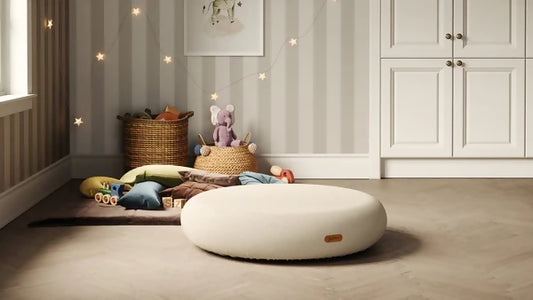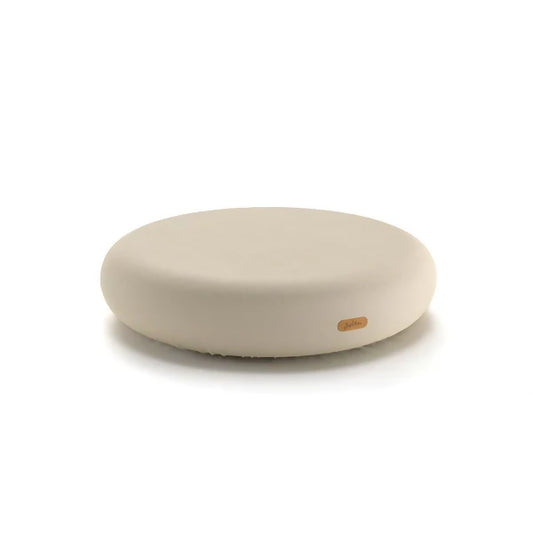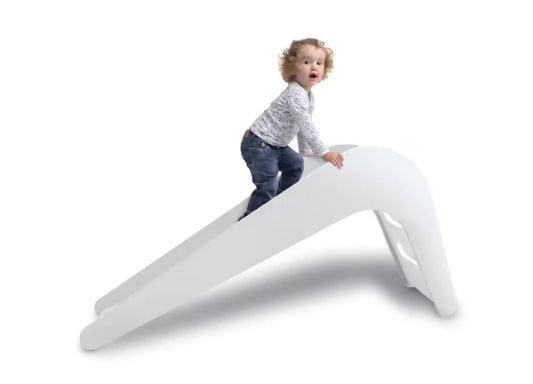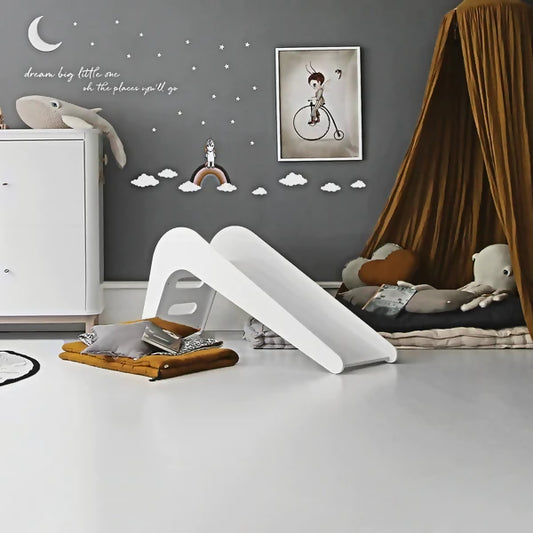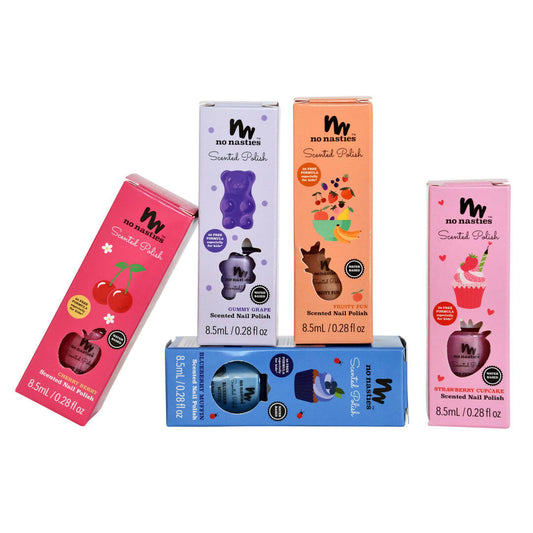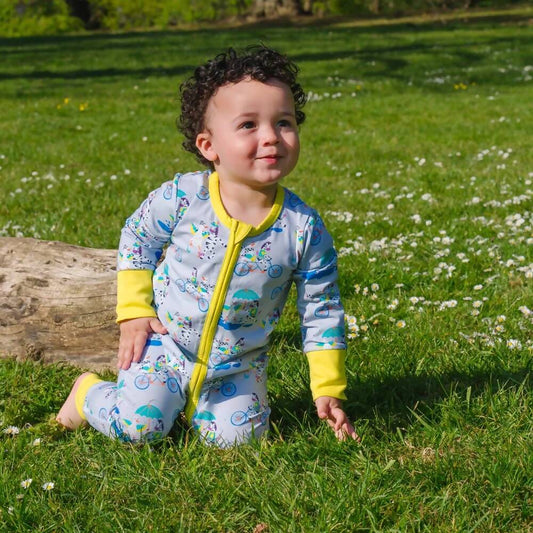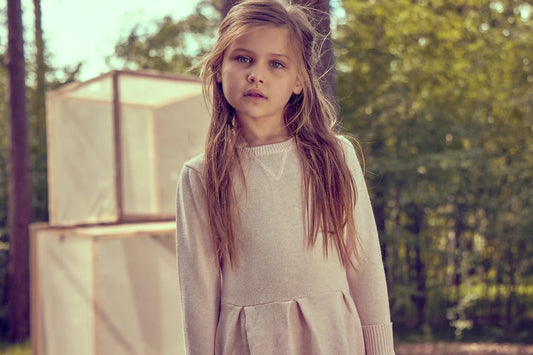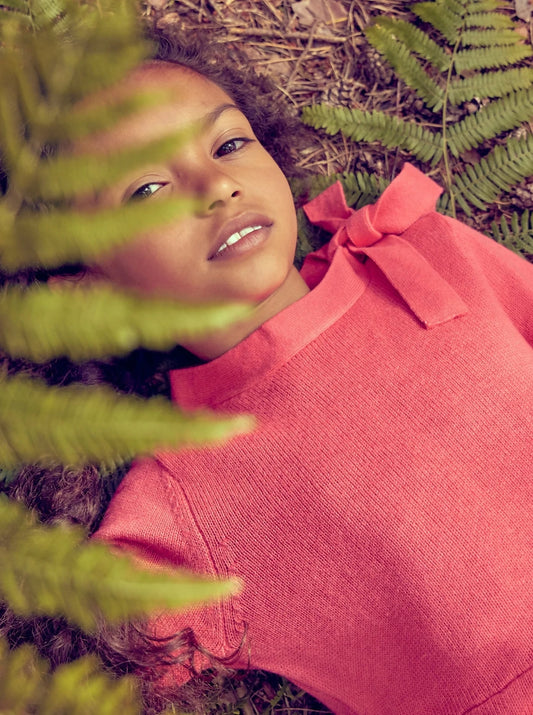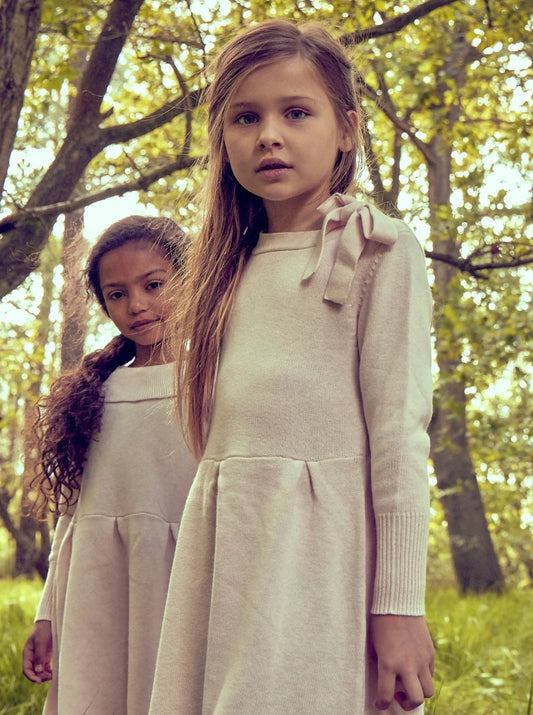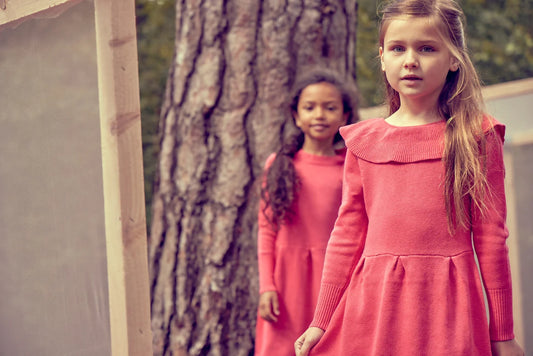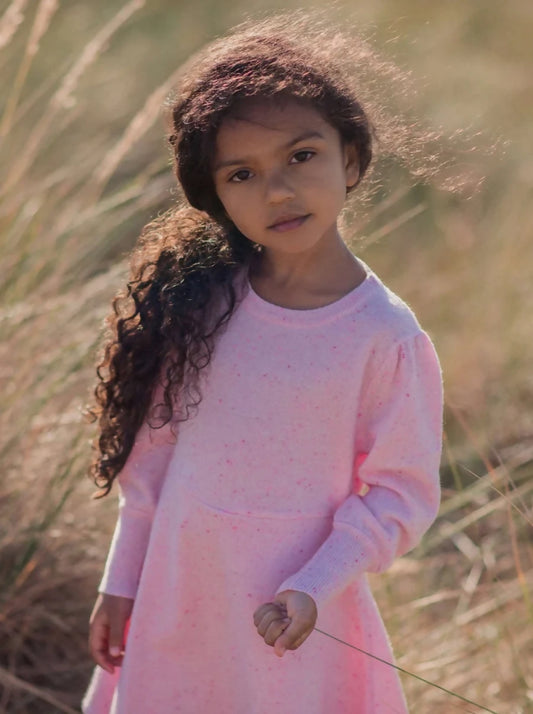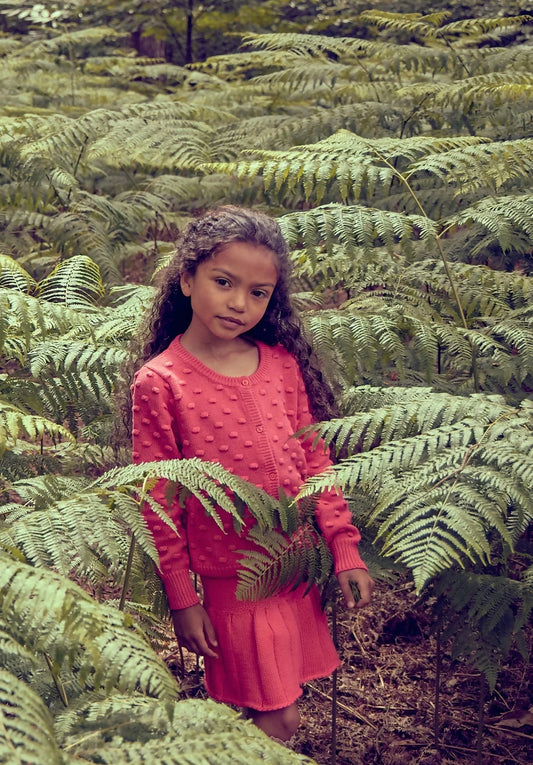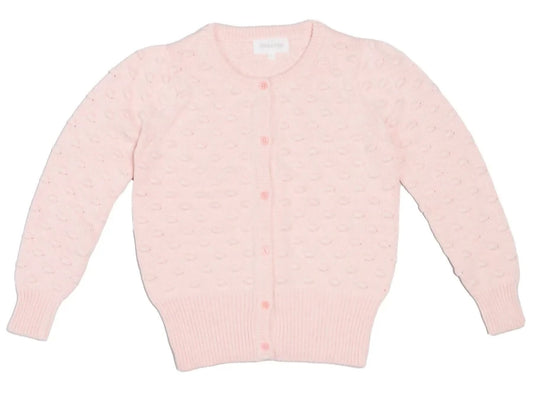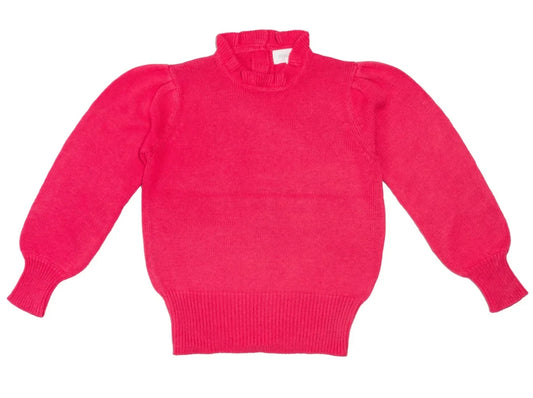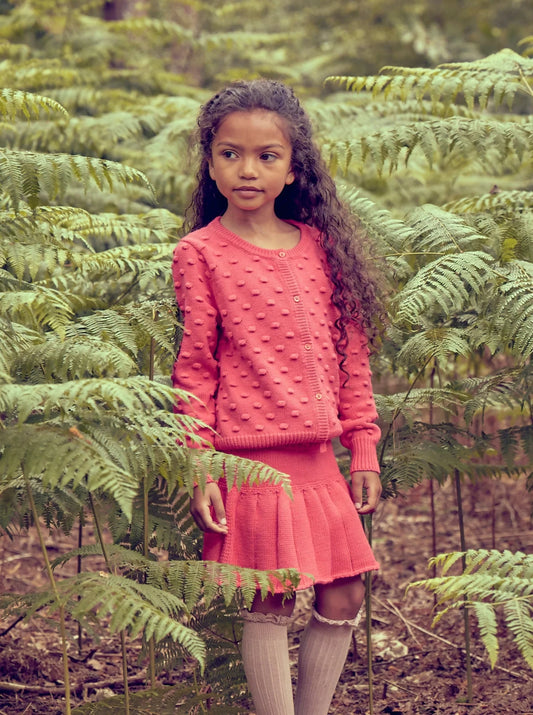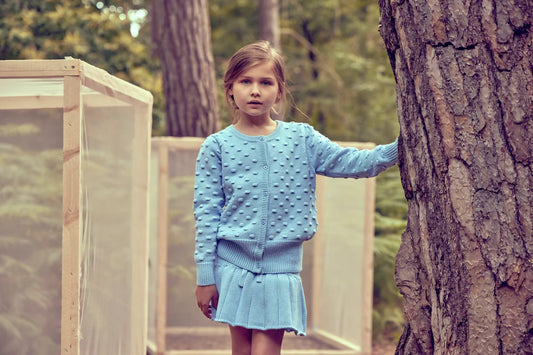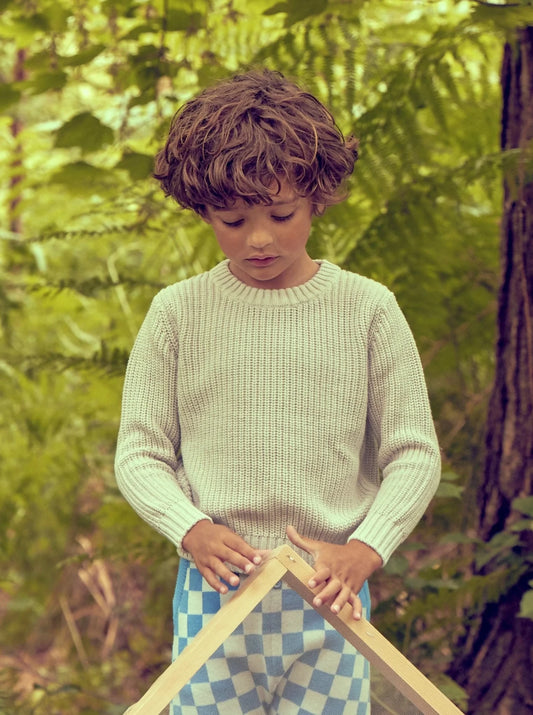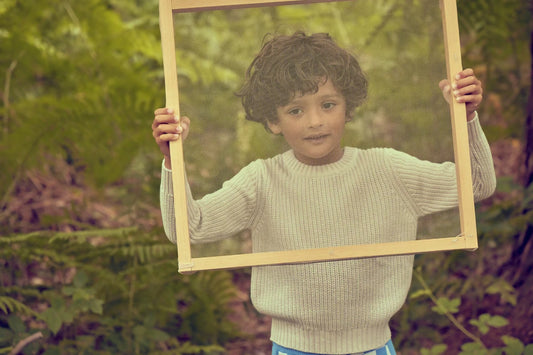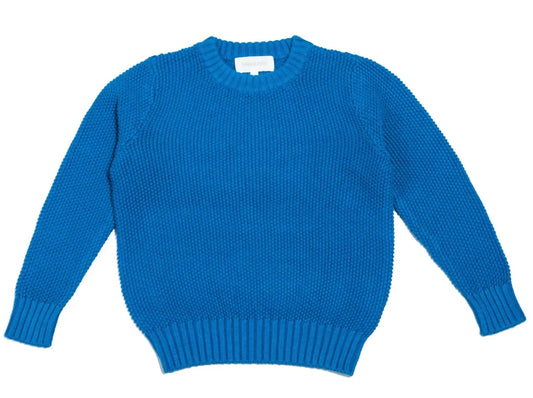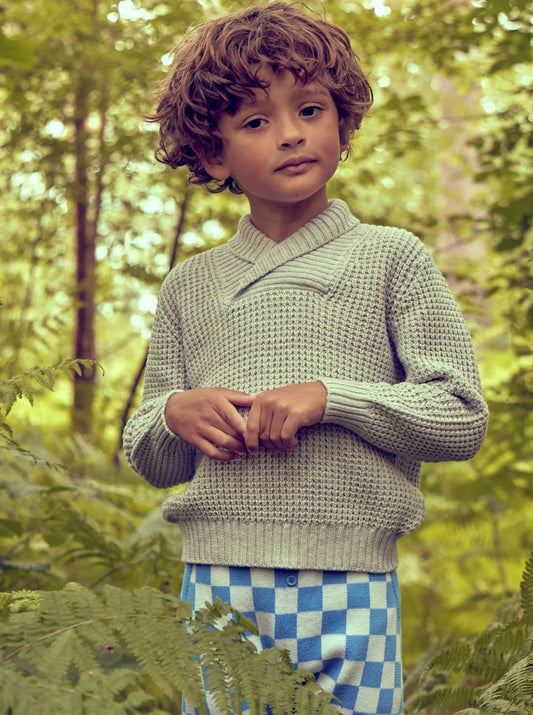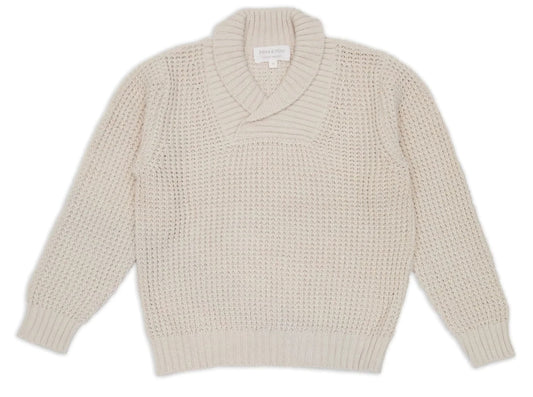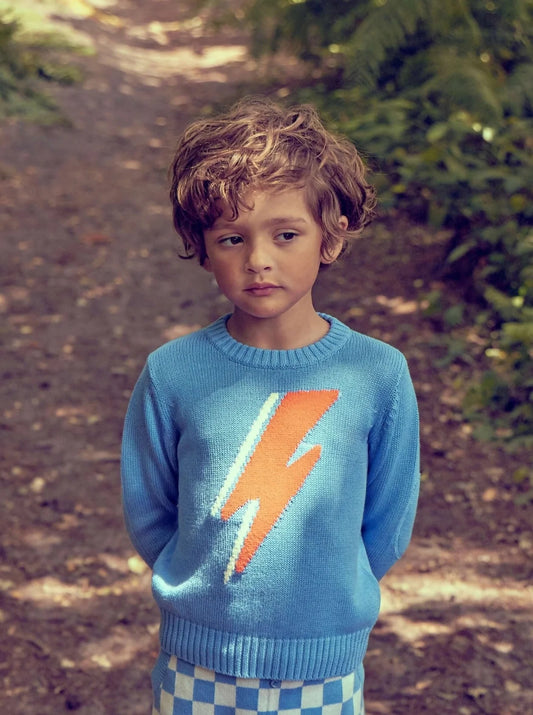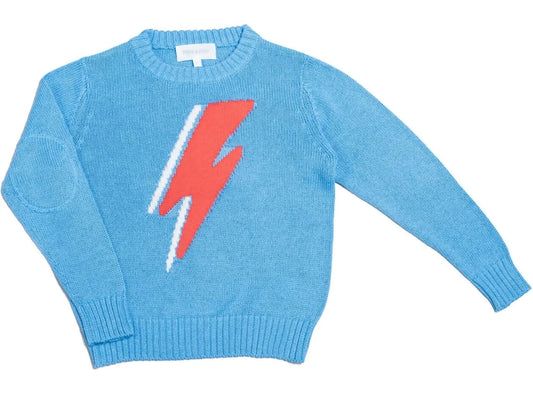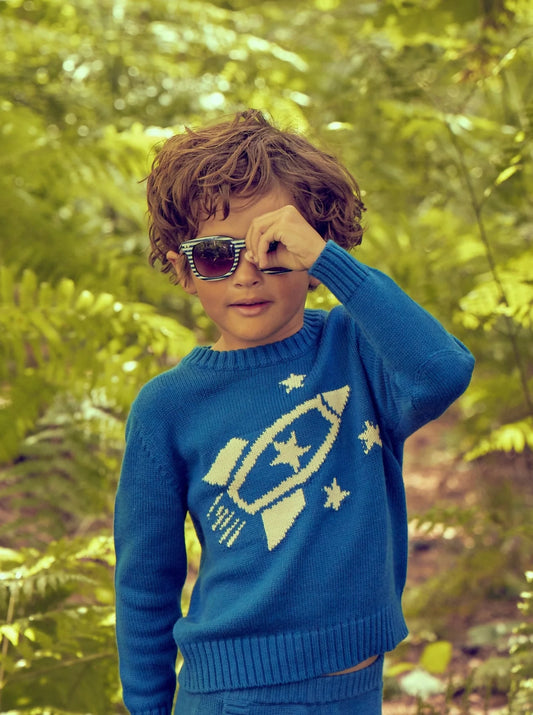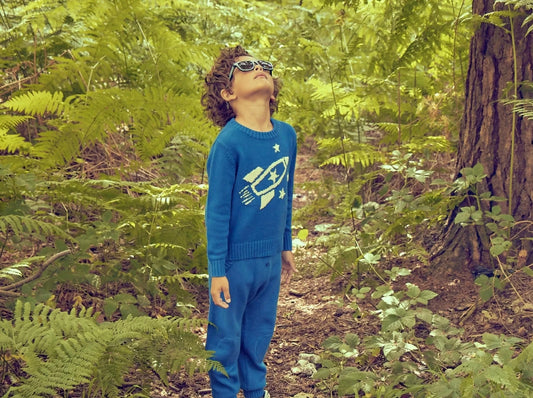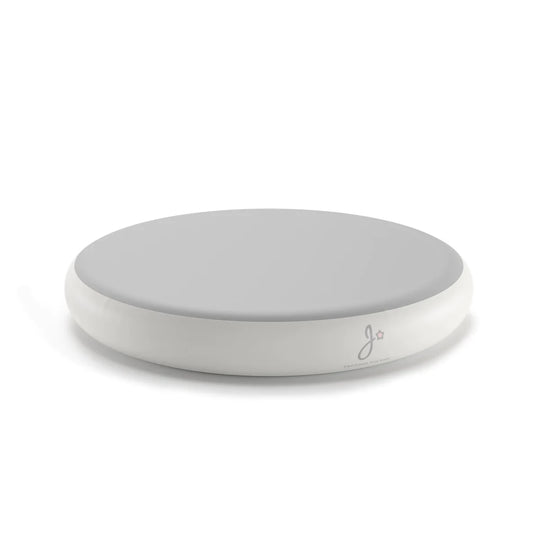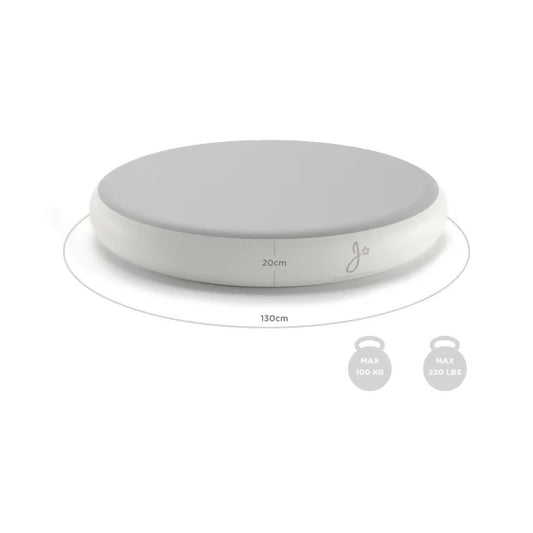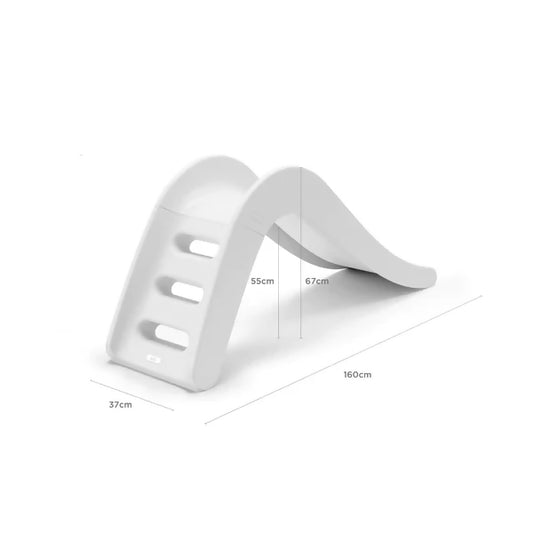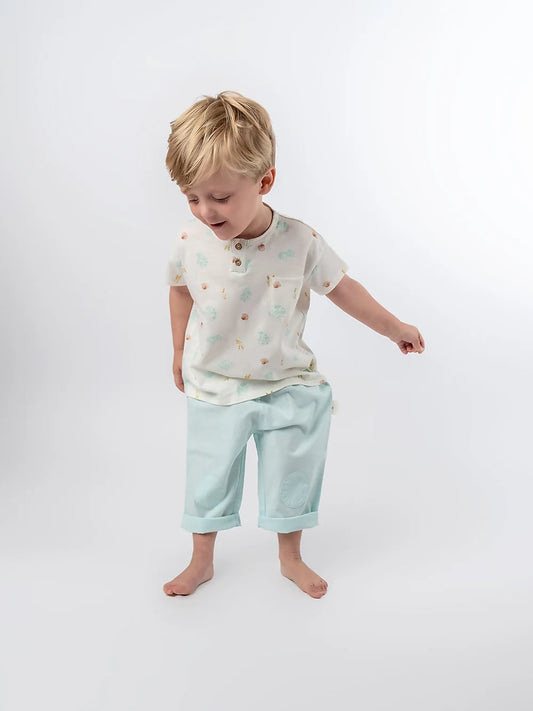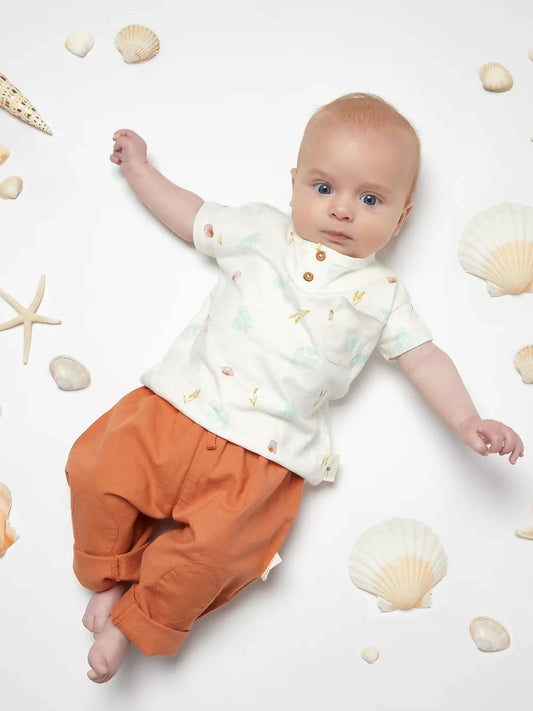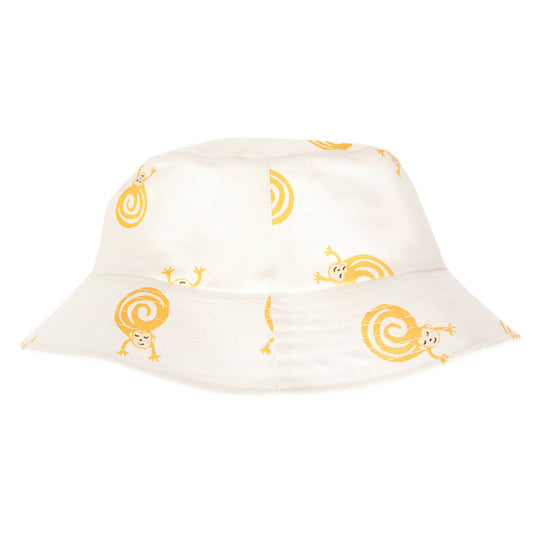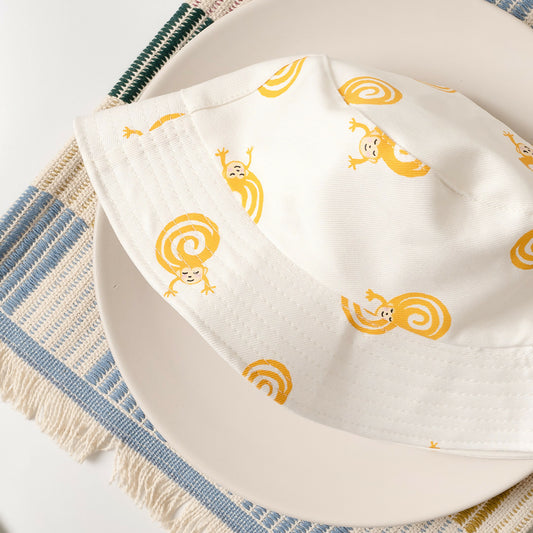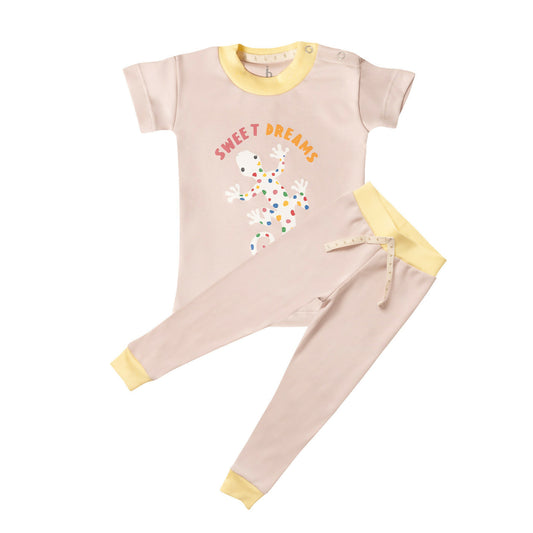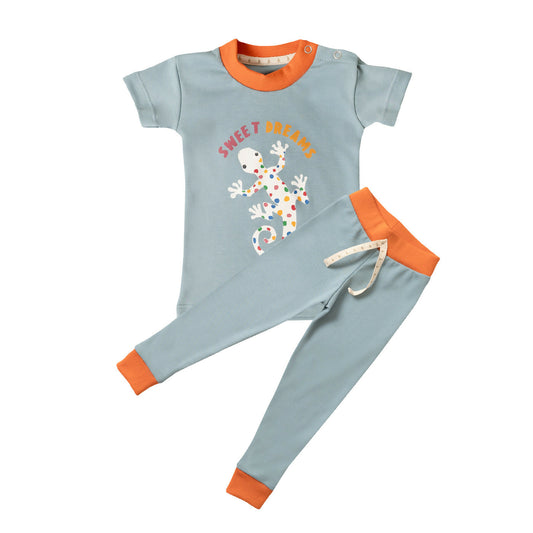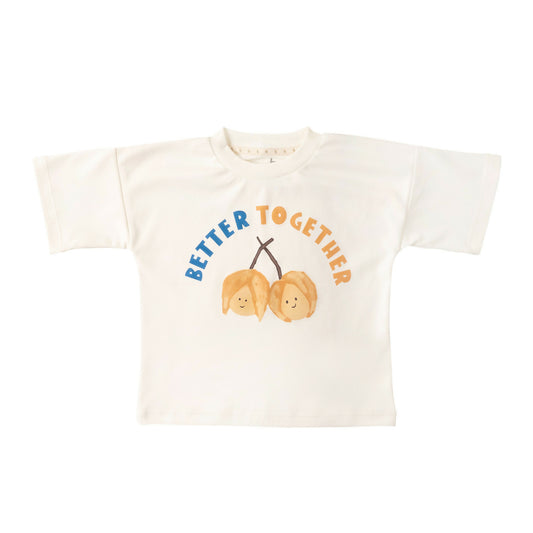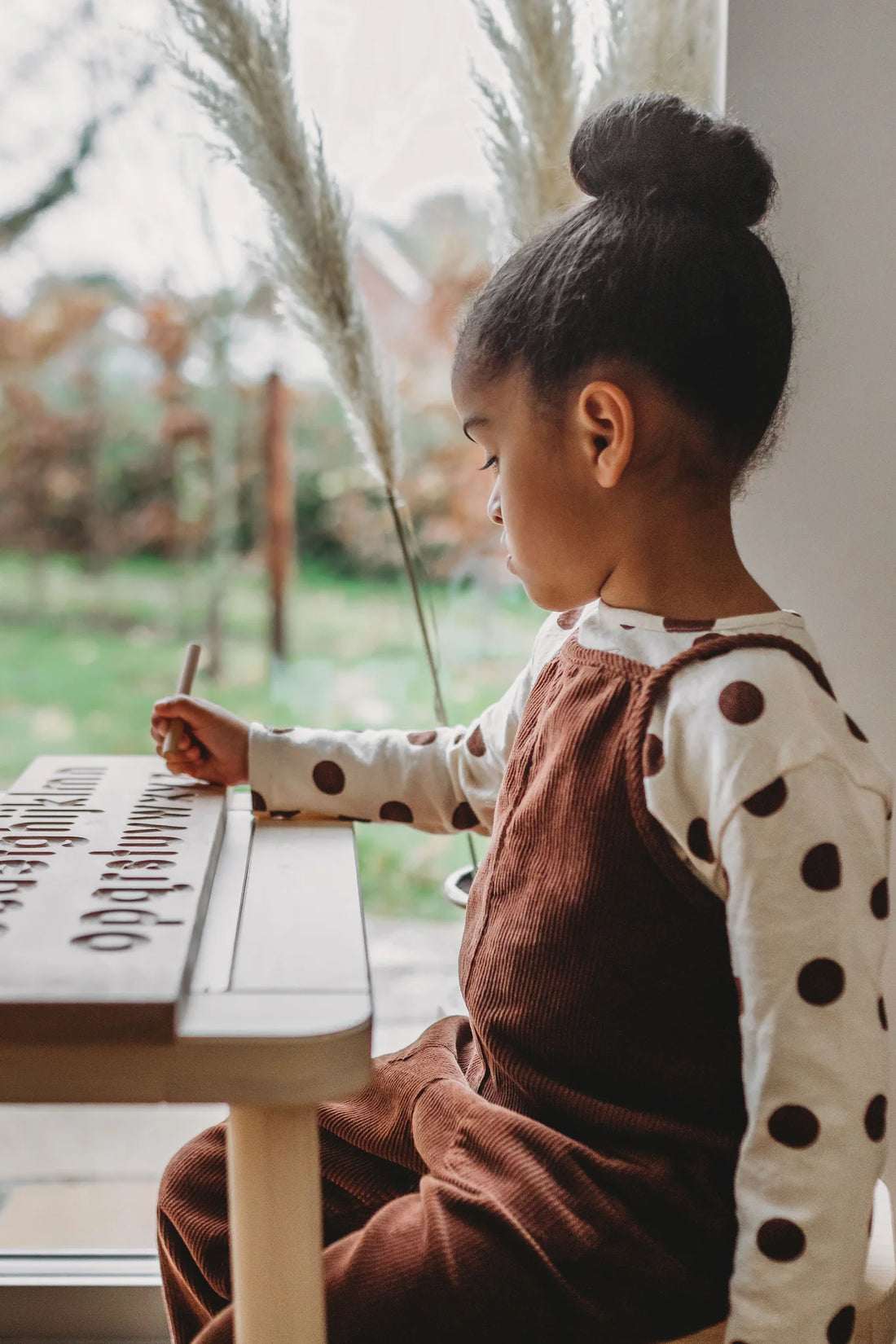
Unlocking Your Child's Potential: The Montessori Method
Share
The Montessori method has gained global recognition for its child-centred approach to education, focusing on fostering independence, creativity, and a lifelong love of learning. At KIDDYKIND, we believe in embracing these principles to create an environment where every child can thrive. But what exactly is the Montessori method, and why should it matter to you as a parent or caregiver? In this blog, we’ll explore the core philosophy of Montessori education and how it nurtures your child’s development.
What is Montessori?
The Montessori method was developed by Dr. Maria Montessori, an Italian physician and educator, in the early 1900s. The approach is based on the belief that children are naturally curious and eager to learn. Rather than being passive recipients of information, children are seen as active participants in their learning journey. Montessori spaces are designed to encourage self-directed learning, where children explore and interact with materials that match their developmental stage.
Key Principles of Montessori Education
- Child-Centred Learning: The foundation of Montessori is the belief that children learn best when they are given the freedom to explore and learn at their own pace. Caregivers act as guides rather than traditional instructors, helping children to develop their own ideas and problem-solving abilities.
- Hands-On Learning: Montessori spaces are filled with hands-on learning materials that encourage sensory exploration. These materials are carefully designed to support cognitive, emotional, and physical development.
- Mixing with Others: In a Montessori environment, children of different ages (usually spanning 3 years) are encouraged to spend time together. This promotes collaboration, leadership, and mentoring, as younger children learn from older ones, and older children reinforce their learning by helping peers.
- Prepared Environment: The space itself is carefully arranged to foster independent learning. Every material is within reach of the child and is intended to teach specific skills, such as practical life skills, math concepts, language, and sensorial exploration.
- Respect for the Child: The Montessori method places a strong emphasis on treating children with respect and valuing their individuality. This approach builds confidence, independence, and a sense of responsibility.
How Montessori Benefits Your Child
The Montessori method focuses on the holistic development of a child—cognitive, emotional, social, and physical. Here are just a few ways Montessori benefits children:
1. Encourages Independence and Self-Discipline
In a Montessori environment, children are encouraged to take responsibility for their own learning and actions. They are given the freedom to choose their activities, manage their time, and work through challenges independently. This sense of autonomy fosters confidence and self-discipline that will serve them throughout life.
2. Promotes a Love of Learning
Because Montessori emphasises learning through exploration and discovery, children often develop a deep love of learning. When they are allowed to pursue topics that interest them, children feel motivated and engaged in their education. Learning becomes a joyful and rewarding experience, not a chore.
3. Develops Critical Thinking and Problem-Solving Skills
The hands-on nature of Montessori materials allows children to experiment, make mistakes, and figure out solutions on their own. This process develops critical thinking skills and teaches them how to approach problems systematically and creatively.
4. Fosters Social and Emotional Development
In mixed-age environments, children learn to collaborate, negotiate, and communicate with others. Older children take on leadership roles, helping younger ones with tasks and guiding them through challenges. This sense of community and mutual respect helps children build strong social and emotional skills.
5. Builds Concentration and Focus
Montessori environments are intentionally designed to minimise distractions, allowing children to focus deeply on tasks. This concentration fosters a love of work, which encourages perseverance and attention to detail.
Famous Montessori Quotes and How to Incorporate Them at Home
Maria Montessori’s ideas about education were grounded in the belief that children are naturally curious and capable of self-directed learning. Some of her most famous quotes reflect her deep understanding of child development and the importance of respecting children as autonomous learners. These ideas can be easily incorporated into daily routines and play at home, encouraging children to explore, learn, and grow at their own pace.
Here are some of Maria Montessori's most impactful quotes, along with suggestions on how to integrate them into play and daily routines, as well as useful resources to support the Montessori method at home:
- "The child is both a hope and a promise for mankind."
- Incorporation in Play & Routine: This quote emphasises the immense potential that every child holds. Parents can support this by providing an environment that encourages exploration and discovery, where children feel empowered to make their own choices. Let your child take the lead in play activities, and encourage them to explore their interests, whether it’s through nature walks, building with blocks, or solving puzzles.
- Montessori Materials at Home: Offer materials that allow for creative exploration, such as building blocks, art supplies, sensory bins, or Montessori-inspired puzzles. A well-organised play area with clear access to tools will help children exercise their independence and creativity.
- "Free the child's potential, and you will transform him into the world."
- Incorporation in Play & Routine: Montessori believed in giving children the freedom to explore within a prepared environment that encourages independent learning. At home, parents can set up spaces where children have easy access to materials and activities that suit their developmental stage. Encourage problem-solving through open-ended play, like stacking blocks, sorting objects, or engaging in imaginative play.
- Montessori Materials at Home: Invest in open-ended toys like wooden blocks, stacking rings, Montessori bead frames, or simple musical instruments. These materials can be used in various ways, promoting creativity and cognitive growth.
- "The environment must be rich in motives which lend interest to activity and invite the child to conduct his own experiences."
- Incorporation in Play & Routine: A Montessori approach emphasises the importance of a rich, stimulating environment that encourages children to take initiative and explore their own interests. You can create a home environment that is thoughtfully arranged with accessible, engaging materials that inspire curiosity and independent learning. For example, set up a cozy reading corner with books on topics your child loves or provide a nature exploration kit.
- Montessori Materials at Home: Books that promote curiosity about nature, art, science, and the world around them, as well as simple nature objects like leaves, rocks, or shells that children can explore. Additionally, materials such as a child-sized table, gardening tools, or a small cooking set will help children develop practical life skills.
- "Never help a child with a task at which he feels he can succeed."
- Incorporation in Play & Routine: Encouraging children to work through challenges on their own builds resilience and problem-solving skills. If your child is struggling with a task, instead of jumping in to fix it, give them time and space to try different strategies. Offer gentle guidance when necessary, but allow them to feel a sense of accomplishment when they figure things out themselves.
- Montessori Materials at Home: Provide activities that are just slightly challenging for your child—things that require them to think and experiment. For example, a puzzle with a few missing pieces, a set of peg boards, or threading beads onto a string can encourage problem-solving and fine motor development.
- "The hands are the instruments of man’s intelligence."
- Incorporation in Play & Routine: Montessori placed great emphasis on learning through hands-on activities. Encourage your child to use their hands as tools for learning by engaging in activities that involve manipulating objects, like modelling clay, sorting objects by size or colour, or engaging in practical life skills such as pouring, sweeping, or washing dishes.
- Montessori Materials at Home: Practical life tools (like child-sized brooms, spoons, or bowls), clay or dough for tactile activities, or threading and lacing toys can help children develop fine motor skills. These simple activities empower children to use their hands for both learning and everyday tasks, while also fostering independence.
- "Follow the child."
- Incorporation in Play & Routine: This quote highlights the importance of observing your child and following their lead in terms of interests and developmental needs. As a parent, be attuned to your child’s cues and adjust their environment accordingly. For example, if your child is showing a keen interest in nature, take them on a nature walk, collect objects, or read books about animals or plants. Support their interests rather than impose your own ideas about what they "should" be doing.
- Montessori Materials at Home: Flexible, interest-driven materials such as art supplies, books on various subjects, or science kits can allow your child to explore their interests at their own pace. For younger children, Montessori trays with materials like spoons, small cups, and soft balls can encourage fine motor skills and concentration.
Montessori Inspired Items for your Home
To implement Montessori principles at home, there are some essential items that can support a Montessori-style environment:
- Child-Sized Furniture
- Why: Allows the child to move independently and gives them a sense of autonomy.
- Examples: Small tables, chairs, and shelves that are easily accessible to children. These encourage independence, allowing children to choose and return materials on their own.
- Practical Life Materials
- Why: Develops fine motor skills, concentration, and independence.
- Examples: Items like child-sized brooms, small pitchers for pouring, tongs or spoons for sorting, and even gardening tools to foster a sense of responsibility and practical learning.
- Montessori Materials for Sensorial Exploration
- Why: Helps children engage their senses and refine their understanding of the world.
- Examples: A set of wooden blocks, textured fabrics, sorting trays, or sensory bins filled with objects like rice, beans, or water beads. These materials encourage children to explore different textures, shapes, and colours.
- Art Supplies
- Why: Encourages creativity, self-expression, and hand-eye coordination.
- Examples: Crayons, coloured pencils, paint, brushes, and paper. Encourage the child to express their ideas freely, which enhances cognitive development and emotional growth.
- Books
- Why: Fosters a love of reading and encourages language development.
- Examples: Books with simple, clear images and age-appropriate content. Montessori encourages real-world topics, such as books about animals, plants, or the human body.
- Nature Materials
- Why: Provides an opportunity to connect with the environment and observe natural phenomena.
- Examples: A magnifying glass, small gardening tools, seed kits, or collections of natural objects (rocks, leaves, flowers, etc.). These encourage curiosity about nature and the world around them.
- Open-Ended Toys
- Why: Supports creativity, problem-solving, and imaginative play.
- Examples: Wooden blocks, building sets like Lego or magnetic tiles, or simple dolls and figurines. These toys allow children to create their own narratives and engage in open-ended play.
We care about the Montessori Philosophy
At KIDDYKIND, we are passionate about providing access to enriching, Montessori-inspired resources that nurtures the growth and development of each child. Our wooden toys and educational resources are designed to support both independent learning and collaborative play, with materials carefully selected to meet the developmental needs of every child.
We believe that every child deserves to feel confident and empowered, and the Montessori method helps them achieve just that—one step at a time.
Conclusion
Incorporating Montessori’s ideas into your child’s home life can be transformative. By creating an environment that encourages independence, exploration, and creativity, you are giving your child the tools they need to succeed in learning and life. Choose materials that are accessible, child-friendly, and engaging, and remember to observe your child’s interests and follow their lead. With a bit of thoughtfulness, you can create a space that supports your child’s natural growth and development in beautiful, meaningful ways.
The Montessori method isn’t just a style of education; it’s a philosophy that respects the child’s natural development. Whether your child is just starting their educational journey or is well on their way, the Montessori approach ensures they are equipped with the skills, confidence, and curiosity to succeed in all aspects of life.
If you’re looking for an environment where your child can grow independently, think critically, and develop a deep love of learning, Montessori might be the perfect fit.

